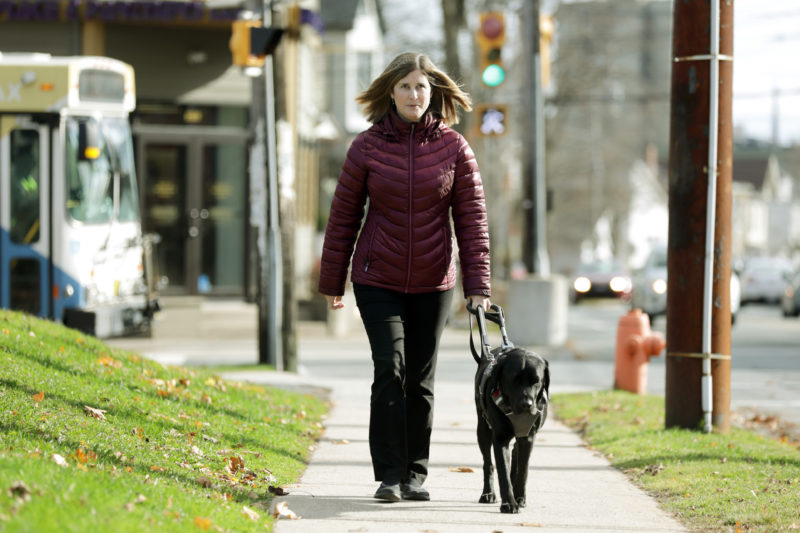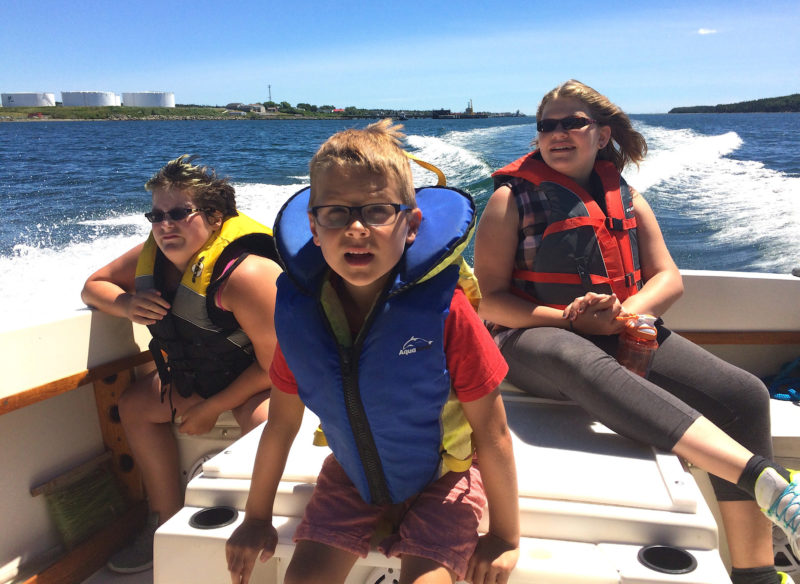Formed by a group of volunteers in 1918, the Canadian National Institute for the Blind (CNIB) was established to accommodate a large influx of people who lost their sight in World War I and the Halifax Explosion.
Celebrating 100 years in 2018, CNIB strives to change what it is to be blind. By offering a wide range of innovative programming for the visually impaired, CNIB connects people with life-changing technology, reduces the incidence of depression and isolation associated with sight loss, and prepares children and youth who are blind for life after high school.
“Our work continues to be powered by a network of volunteers, plus donors and partners from coast to coast,” says Shelley Adams, Community Engagement Manager at CNIB NS. “And our passionate, committed and tireless advocacy efforts seek to bring about change so Canadians with sight loss can participate fully as equal citizens.”
In its Bold Dreams, Bright Futures strategic plan, CNIB identifies three fundraising objectives.
The first objective is to boost participation in the world of work. The team sets up workshops and one-on-one coaching sessions to help individuals with sight loss acquire tools and skills to qualify for employment. Relevant to finding and maintaining meaningful employment, some of the supports offered include self-advocacy and disclosure, body language, and job searching using screen readers.
“Our self-advocacy workshops help Nova Scotians with sight loss learn necessary techniques, empowering them to become effective advocates for change in their lives and the lives of those around them,” says Adams.
Designed to help prepare students with sight loss, the Life After High School program prepares them to successfully transition from high school to post-secondary education or employment.
Participating students living in residence partake in campus and community activities such as tours/class observation, budgeting, meal planning, career exploration and learning about available resources.
CNIB’s second objective is to unleash the power of technology with life-changing programs that connect people of all ages with cutting-edge equipment and software. The programs utilize smartphones with built-in accessibility features and apps that read print, describe objects and help people safely navigate their communities.
“Many of our in-person programs were confined to our larger centres, like Halifax and Sydney, and now that everything is virtual, we can have an impact on people living in more rural communities,” says Adams. “Many of our clients are seniors and may not have access to technology, however, through Zoom we are able to call them and connect them to programs.”
These technology-enhanced programs are improving the lives of the community with sight loss, especially during the pandemic. COVID-19 has certainly amplified the impact of these programs through CNIB’s increased digital adoption over the past year.

“Now not only can our N.S. clients connect with each other, but most of our programs throughout Canada are offered nationally,” says Adams. “So people from all over the country can connect with each other.”
“This has led to our clients saying they feel less isolated during this isolating time, and many friendships have formed.”
The third and last objective is to drive achievement and equality. CNIB’s Vision Mate Program, for example, matches individuals without sight with specially trained sighted volunteers. They offer assistance with a variety of activities like reading the mail and shopping as well as enjoying every day social activities.
“Our programs provide an opportunity for individuals with sight loss to connect with others who have similar interests,” says Adams. “From walking, knitting and book clubs to virtual trivia, yoga, gardening, music and cooking.”
“Although we are looking forward to things getting back to normal and for our clients to be able to gather in person again, many of our virtual programs are here to stay,” says Adams. “The value of people being able to participate in programs no matter where they live in the country is invaluable.”
Another CNIB program supporting the third objective is Summer Adventure Camp. The five-day camp is filled with exciting activities for eight to 18 year-olds with sight loss––such as mini-golf, games and accessible sports (like goal ball), science experiments, pony rides, crafts, hiking, scavenger hunts, field trips, museum visits, exploring new technology, learning first aid, cooking and boat rides.
“It’s a camp where kids can just be kids while developing life skills and making new friends,” says Adams.

Adding more fun to the excitement, CNIB is hosting a fundraiser called Over the Edge to support their drive in changing what it is to be blind. The first 100 adventurous individuals who help boost the fundraising goal will earn a spot to rappel 13 stories down the Westin Nova Scotian in downtown Halifax on Oct.1 and 2, 2021.
“CNIB is an organization that values respect for diversity, for language, for each other and for all people with sight loss,” says Adams.
“It is committed to conducting all its affairs with equality and fostering a unique and inclusive culture by providing an accessible and respectful work environment that is free from discrimination, ableism and cultural barriers.”
Guaranteed to keep participants entertained and engaged, CNIB’s virtual programs are free and accessible to Canadians with full or partial sight loss as well as their families, friends and caregivers.■
< Back to Articles | Topics: Profile

